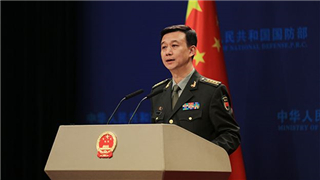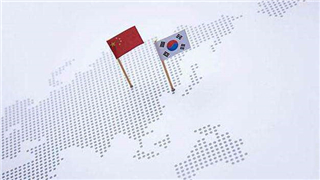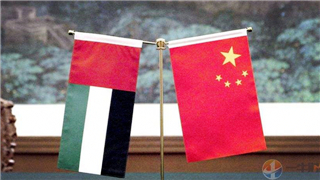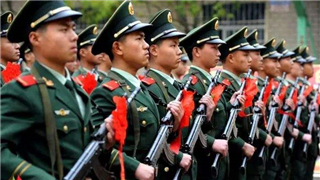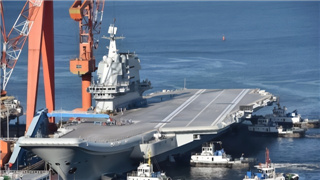
Chinese Foreign Minister Spokesperson Geng Shuang refutes Vietnam’s accusations at a regular press briefing on Friday.
Vietnam once again issued false information on the illegal fishing and sinking of its fishing boat in China’s Xisha Islands earlier this month, aiming to seek justice from the Chinese side. Vietnam encouraged its fishermen to illegally fish, making trouble out of nothing. Such behavior will damage the atmosphere of peace and stability in the South China Sea and will eventually only embarrass Vietnam.
On March 6, a Vietnamese fishing boat illegally trespassed and fished in the internal waters and territorial sea of China’s Xisha Islands and sank after hitting rocks. The official Vietnamese agency first claimed that the Vietnamese fishing boat was “rammed” and “sunk” by a vessel of the China Coast Guard and the Vietnamese fishermen fell into the water. The Chinese side clarified the facts and pointed out that the Vietnamese fishing boat sank after hitting rocks and the Chinese vessel went to the rescue. Then, the Vietnamese side said on March 21 that before it hit the reef and sunk, the Vietnamese fishing boat was “driven and sprayed with water guns” by the Chinese vessel.
It is particularly ridiculous that the Vietnamese fishermen demanded that China compensate their losses and pay VND 8 billion (about 860,000 yuan). The Vietnamese Ministry of Foreign Affairs actually supported the unreasonable demands of its fishermen.
The South China Sea has been relatively calm in the past two years. China, Vietnam and the Philippines have better managed their differences, and the disputes over the islands and reefs have not interfered with the overall cooperation. China-Vietnam economic and trade cooperation has grown especially fast. The trade volume between the two countries in 2018 reached $106.7 billion, making it the largest bilateral trade between ASEAN and China.
However, Vietnam has publicly voiced detailed maritime issues to create a bit of a wave in the South China Sea from time to time. In particular, on the issue of Xisha Islands, the Vietnamese side has encouraged its fishermen to go fishing in Xisha to put pressure on China’s actions to maintain sovereignty. Xisha is completely under the control of China. The Vietnamese side wants to create controversy in the area, where US warships have appeared several times since last year. This is the unspoken cooperation between the US and Vietnam.
The Chinese side showed their greatest goodwill by coming to the rescue of the Vietnamese fishing boat. However, the Vietnamese side publicly made it a maritime incident between China and Vietnam, and then proposed an unreasonable request for compensation. This is a fraudulent claim.
China will not make concessions Vietnam expects on maritime issue, and Hanoi has no the ability to ask for concessions from the Chinese side. Some of Vietnam’s ideas are too naive. Hanoi has shown an “aggressive” attitude toward the South China Sea issue from time to time, which has created a contradiction against its strategy of forming a comprehensive strategic partnership with China.
Vietnam’s swing and the rapidly growing Vietnam-US relations have occurred at the same time. Analysts believe that the Vietnam’s misjudgment of the current international environment is conducive to the request made on the Chinese side. Vietnam also believes that certain friction with the Chinese side over the South China Sea issue is conducive to attracting support from the US and Japan.
However, Vietnam is most likely wrong. First, China will not please Vietnam over maritime issues. That is, Vietnam will not gain anything under any circumstances. In addition, Hanoi’s fraudulent claim will incite domestic nationalism, and nationalism will increasingly become the main lever for the overseas Vietnam Reform Revolutionary Party and the Vietnamese domestic liberals to jointly carry out activities against the Communist Party of Vietnam.
The overall political situation in Vietnam has been smooth since its development of market economy. However, market economy will inevitably lead to the diversification of interests and the formation of anti-traditional sentiments. If Vietnam allows anti-China nationalism to grow, it will bury a fuse that breaks the current state.
We hope that the Vietnamese side will seriously manage and control the differences at sea with the Chinese side and that it doesn’t take the initiative to pick things up, speculate on frictions at sea, or engage in other activities that can complicate the maritime issue. The Vietnamese side should be clear that China has the capability to safeguard its sovereignty and maritime rights and interests. China advocates managing differences, which is a kind of goodwill. Peace at the sea is in the interests of both China and Vietnam. It is necessary for the Vietnamese side to remain fully awake and stay away from all kinds of temptations. Guiding friendly sentiment toward China will help make Vietnam’s various interests more coordinated and avoid ideological confusion.
